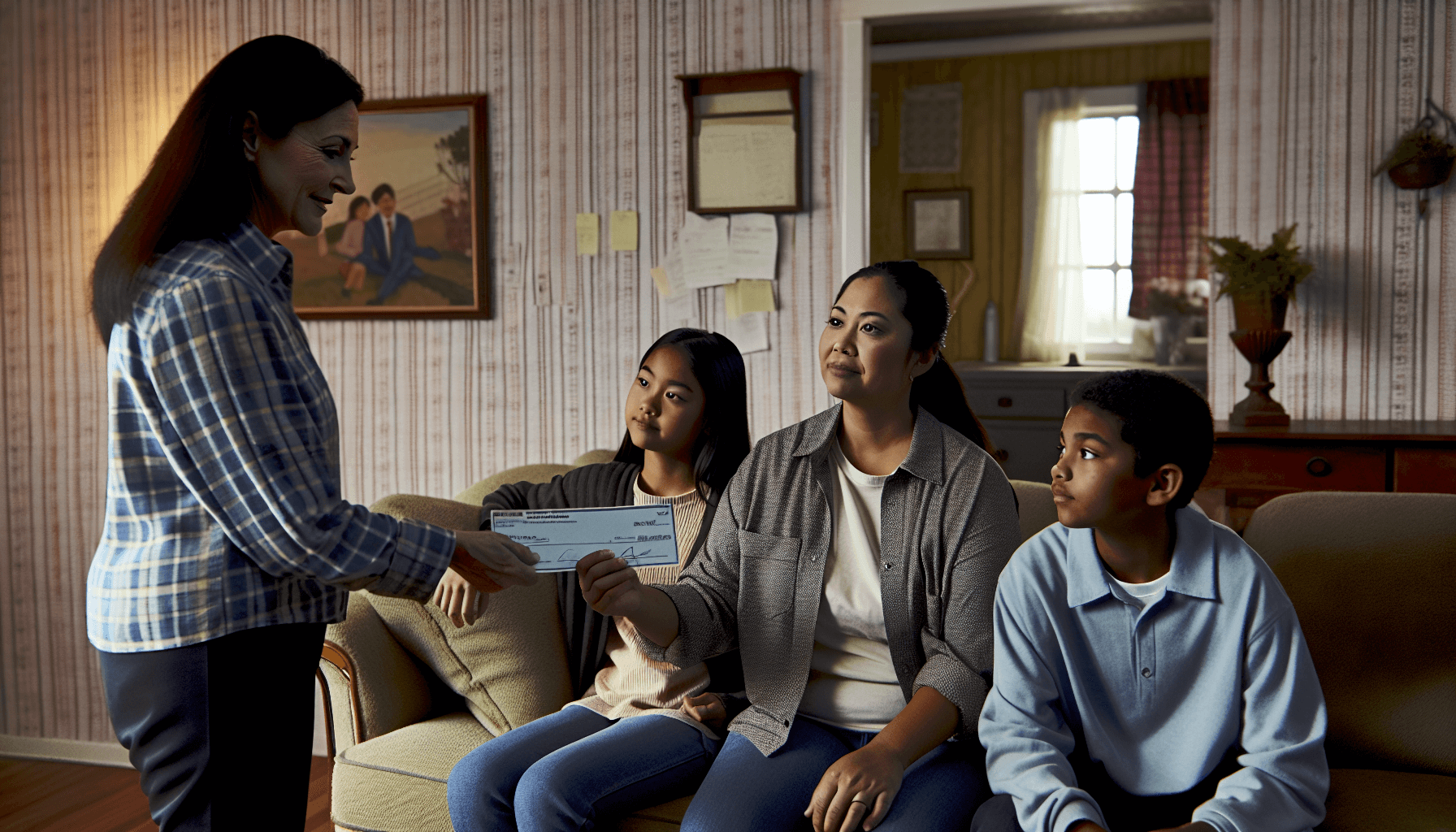Navigating the maze of housing assistance programs can be daunting when all you need is a simple answer: How can I find affordable housing options that fit my situation? This guide cuts through the complexity to help you understand the various federal, state, and local resources available, including eligibility requirements and application processes. Discover practical steps to access the housing support you and your family need.
Key Takeaways
- Federal housing assistance programs including Housing Choice Vouchers, Section 8, Public Housing, and LIHEAP play a crucial role in aiding eligible families, seniors, and people with disabilities, but face funding limitations leaving many without support.
- Local housing resources and HUD-approved housing counseling agencies are vital for navigating housing assistance; it’s important for applicants to maintain updated information and be responsive to communications from Public Housing Agencies.
- Effective record keeping and documentation, such as proof of income and personal identification, are essential throughout the application process for housing assistance programs, and applicants may need to address eligibility barriers like criminal records or credit issues.
Understanding Housing Assistance Programs

Eligible families struggling to secure affordable housing can find a lifeline in federal rental assistance programs which subsidize their housing costs. The major players in this arena are Housing Choice Vouchers, Section 8 Project-Based Rental Assistance, and Public Housing, which collectively support approximately 90 percent of the households benefiting from federal rental assistance.
However, these programs face the challenge of funding limitations, which leave a significant unmet need across the country. As a result, many households who qualify for assistance are left to grapple with housing instability.
However, rental assistance extends beyond traditional apartments or houses, covering varied living situations. Even renters in varied living situations, such as mobile homes, can access assistance.
Public Housing
Eligible low-income families, the elderly, and persons with disabilities can find hope in public housing. It provides decent and safe rental housing that is managed by public housing agencies. Eligibility for public housing is determined by factors such as annual gross income, family status, and U.S. citizenship or eligible immigration status. Income limits are set at 80% for lower income and 50% for very low-income of the area median income.
These local housing agencies, funded by the Department of Housing and Urban Development (HUD) and overseen by local government, are responsible for managing public housing units. Their responsibilities include lease enforcement and property maintenance. Residents can stay in public housing as long as they comply with the lease. However, they may be required to move if their income rises sufficiently for private housing.
Housing Choice Vouchers
The Housing Choice Voucher program, commonly referred to as Section 8, also stands as a significant contributor to housing assistance. This program assists eligible low-income families, seniors, and people with disabilities to pay rent in private housing. The private housing options include single-family homes, townhouses, and apartments.
Eligibility for the Housing Choice Voucher program is determined by the applicant’s total annual gross income, family size, and citizenship or eligible immigration status. Due to the high demand for this program, applicants often experience a waiting period. To navigate this, applicants are advised to update their local housing authority about any income or household changes, apply with multiple Public Housing Agencies (PHAs), maintain updated information, and remain responsive.
Low-Income Home Energy Assistance Program (LIHEAP)
LIHEAP is another vital program that offers financial assistance to eligible low-income households to manage the costs of heating and cooling their homes. It provides various types of support, including:
- Bill payment assistance
- Energy crisis assistance
- Weatherization
- Energy-related home repairs
Eligibility for LIHEAP benefits is tied to financial necessity for home energy costs. Participation in other assistance programs like SNAP, SSI, or TANF may automatically qualify an individual for LIHEAP. As a mandatory funding program that does not require matching funds, LIHEAP serves a variable number of people annually.
Navigating Local Resources for Housing Assistance

Beyond federal programs, a wealth of local resources are at the disposal of individuals seeking housing assistance. Online tools, such as the HUD Resource Locator, can help you find important housing resources, including Public Housing Agencies and affordable multifamily and public housing locations. You can also use online maps to search for privately-owned apartments that offer reduced-rent or affordable rates.
HUD-approved housing counseling agencies offer housing advice. They provide assistance through a toll-free number for housing-related concerns. You can access state-specific rental assistance information to meet your housing needs. This information helps in finding affordable rentals and utility bill assistance.
Searching for Local Programs
Start your search for local housing assistance by considering location, bedrooms, accessibility, and budget. Decide between tenant-based subsidies, like Section 8, or project-based subsidies. HUD-approved agencies offer resources for finding local assistance. In Massachusetts, the Department of Housing and Community Development provides guides listing housing agencies. These guides help in your search.
Contacting Local Agencies
For inquiries about public housing and housing choice vouchers, you can reach out to Public Housing Agencies (PHAs) using online lists or interactive maps for state-specific contact information. Detailed profiles provide further information regarding individual Public Housing Agencies, including addresses and additional contact options.
For questions related to housing programs and policies, you can call the Public and Indian Housing (PIH) Customer Service Center. Applications for emergency rental assistance should be directed to local ERA programs, which have the discretion to tailor policies and application procedures.
Financial Assistance for Renters and Homeowners

Renters and homeowners can get financial help for housing costs, rent reductions, and utility expenses. Emergency rental assistance covers these costs for renters. Mortgage assistance programs offer loan modifications, refinancing, and payment reductions for homeowners.
Emergency Rental Assistance
Emergency rental assistance programs cover rent, utilities, and more. They also offer counseling and legal help. To qualify, you must meet income limits and show financial hardship.
Apply through local ERA programs, which vary by area. If landlords refuse funds, programs may pay applicants directly.
Mortgage Assistance Programs
The Homeowner Assistance Fund (HAF), aimed at homeowners facing economic hardship during the COVID-19 era, has provided financial support to over 230,000 homeowners by 2022. To be eligible for HAF, the following criteria must be met:
- The property must be the homeowner’s primary residence
- The financial hardship must have occurred after January 21, 2020
- The mortgage principal must be within conforming loan limits.
HAF provides mortgage help for due and overdue payments, utilities, and insurance. It focuses on those facing foreclosure. Homeowners previously aided by HAF can reapply if facing foreclosure now.
Special Housing Needs and Support Services

Specific populations with unique housing needs are the focus of housing assistance programs and support services. These include:
- Rental assistance
- Housing stability services
- Supportive housing programs that combine housing with crucial supportive services such as job training, case management, and substance abuse treatment, tailored for vulnerable populations.
Supportive Housing for Homeless Individuals and Families
A spectrum of housing options, including both short-term and long-term accommodations, is provided by supportive housing for homeless individuals and families within the local community. These programs aim to help residents attain stability and independence.
In addition to housing, essential on-site services are offered to enable residents to address and overcome various challenges, such as mental health issues, substance abuse problems, and physical disabilities. Certain programs are designed to serve specific segments of the homeless population, including veterans, youth, and survivors of domestic violence, catering to their particular needs.
Housing Assistance for Seniors and Persons with Disabilities
Specific housing assistance programs like Section 811 and Section 202 are available for seniors and persons with disabilities. Financial assistance is available through project rental assistance, which covers the difference between resident payments and HUD-approved operating costs.
To be eligible for these programs, households must meet certain income and status criteria. State housing agencies work in conjunction with health and human services and Medicaid agencies to ensure the targeted provision of housing services to those most in need.
Application Process and Documentation

Eligible households need to meet certain conditions to be eligible for rental assistance, including:
- Unemployment
- Loss of income
- Large expenses
- Financial hardships
- Income below a certain level
- Risk of homelessness or housing instability
Individuals with disabilities can request housing assistance applications to be mailed to them if they are unable to apply in-person.
It is important to address any potential barriers to eligibility, such as criminal records, credit issues, or tenancy problems, early in the application process to avoid future hindrances.
Gathering Necessary Documents
One should have personal documentation like social security cards and birth certificates for all household members prepared when seeking housing assistance. Proof of income, such as the last several paychecks or a notarized statement, is also essential.
Applicants need to:
- Sign a statement confirming the correctness of the information
- Maintain copies of their submission, with screenshots or receipts serving as application proof
- Maintain all correspondence with local Public Housing Authorities and HUD to avoid clerical errors affecting their application status
Record keeping is crucial in this process.
Submitting Applications and Follow-Up
You can submit applications for housing assistance through local housing authorities, regional non-profit housing organizations, and MassHousing for both subsidized and market-rate apartments. Depending on the area, landlords might need to initiate the process for emergency rental assistance, or tenants may be able to apply directly.
Once you’ve submitted an application for a housing voucher, make sure to reach out to your local public housing agency for help in checking your submission’s status. During the application process, responding promptly to all related correspondence is essential. Do not hesitate to request necessary accommodations like deadline extensions if needed.
Summary
In conclusion, housing assistance programs provide crucial support to families, seniors, individuals with disabilities, and the homeless, offering a range of resources from rental and mortgage assistance to supportive housing services. By understanding how these programs work, who they serve, and how to apply, individuals in need can find affordable housing solutions.
Frequently Asked Questions
Low-income families, the elderly, and persons with disabilities are the primary beneficiaries of federal rental assistance programs.
You can find local housing assistance services using online tools like the HUD Resource Locator and online maps to locate affordable housing options in your area.
The Emergency Rental Assistance program covers rent, utilities, home energy costs, internet service, and provides support such as housing counseling and legal representation.
Supportive housing programs offer housing options and on-site services to address mental health, substance abuse, and physical disabilities. This ensures comprehensive support for homeless individuals and families.
When applying for housing assistance, you will need personal documentation like social security cards and birth certificates for all household members, as well as proof of income. Be sure to have these documents ready for your application.










